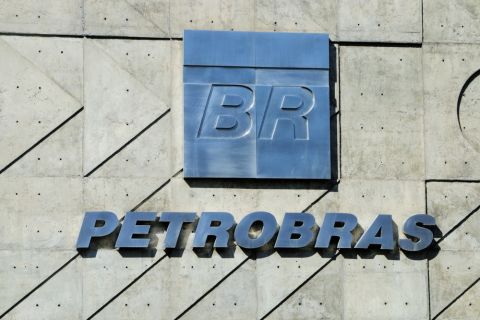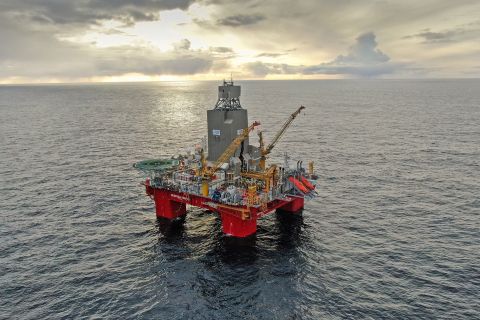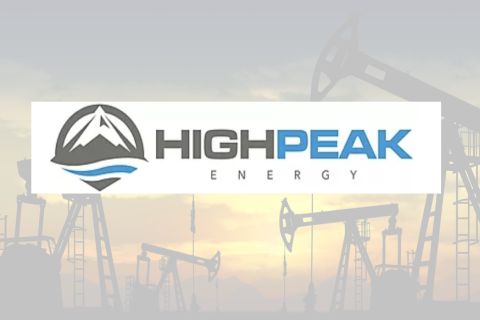The United States and European Union plan to unveil a joint agreement this week to step up efforts to reduce emissions of the potent greenhouse gas methane from the fossil fuel sector and are hoping other nations will sign up.
A draft of the pledge, seen by Reuters, said the United States and EU will agree to target the energy sector with both domestic and international measures, such as policies to stop routine venting and flaring of natural gas, and require companies to fix leaks in their infrastructure.
Both the United States and EU, the biggest greenhouse gas emitters behind China, have proposed regulations to curb oil and gas companies' methane leaks domestically, but they have not yet been implemented.
The declaration would build on an agreement spearheaded by the United States and EU last year to slash methane emissions 30% by 2030 from 2020 levels.
That "Global Methane Pledge" has since been signed by 119 countries, among them 13 of the world's top 20 methane emitters including Brazil, Indonesia, Mexico and Nigeria.
A U.S. official said the United States and EU had lined up support from a few "major players" for the new declaration without specifying further.
The draft said signatories could also bolster monitoring and reporting of methane emissions, forcing companies to face up to the scale of their problem.
International standards
A senior EU official said the declaration aimed to advance international standards for such monitoring and reporting. "The methane abatement work is suffering from the lack of international standards," they said.
"We commit to working towards the creation of an international market for fossil energy that minimizes flaring, methane and CO2 emissions across the value chain to the fullest extent practicable, as we also work to phase down fossil fuel consumption," the draft said.
Methane has more than 80 times the planet-warming potency of CO2 in its first 20 years but breaks down faster in the atmosphere, making it a high value target in near-term efforts to slow climate change.
"Any agreement to reduce methane and carbon dioxide from oil and gas is a reflection of the potential power of the market to push change throughout the world," said Jonathan Banks, Global Methane Director at the non-profit Clean Air Task Force, who called for other big gas buyers and producers to join.
The 27-country EU is the world's biggest buyer of gas, while the United States is the world's biggest oil and gas producer.
Agriculture is the top source of methane emissions worldwide, but experts say the energy sector can cut emissions faster and often at low cost.
Methane is the main component of natural gas and leaches into the atmosphere from oil wells and leaky gas pipelines.
If captured, it can be sold as fuel. Despite that incentive to capture emissions, atmospheric concentrations of methane surged last year by the highest amount since records began in the 1980s.
U.S. LNG deliveries to the EU have jumped this year as Russian gas supply to Europe dipped following its invasion of Ukraine.
Forty countries are expected to publish plans at the COP27 summit detailing how they will meet the Global Methane Pledge, which is voluntary but aims to trigger more binding policies.
Tim Grabiel, senior lawyer at non-profit Environmental Investigation Agency, called for international action on methane emissions to move beyond voluntary declarations, to "concrete actions and commitments on reporting and mitigation."
So far, the Global Methane Pledge does not include China, the world's biggest methane emitter. Nor does it include Russia, which was Europe's biggest gas supplier before it invaded Ukraine in February.
Recommended Reading
CEO: Continental Adds Midland Basin Acreage, Explores Woodford, Barnett
2024-04-11 - Continental Resources is adding leases in Midland and Ector counties, Texas, as the private E&P hunts for drilling locations to explore. Continental is also testing deeper Barnett and Woodford intervals across its Permian footprint, CEO Doug Lawler said in an exclusive interview.
Petrobras to Step Up Exploration with $7.5B in Capex, CEO Says
2024-03-26 - Petrobras CEO Jean Paul Prates said the company is considering exploration opportunities from the Equatorial margin of South America to West Africa.
Vår Energi Hits Oil with Ringhorne North
2024-04-17 - Vår Energi’s North Sea discovery de-risks drilling prospects in the area and could be tied back to Balder area infrastructure.
For Sale, Again: Oily Northern Midland’s HighPeak Energy
2024-03-08 - The E&P is looking to hitch a ride on heated, renewed Permian Basin M&A.
CNOOC Finds Light Crude at Kaiping South Field
2024-03-07 - The deepwater Kaiping South Field in the South China Sea holds at least 100 MMtons of oil equivalent.





